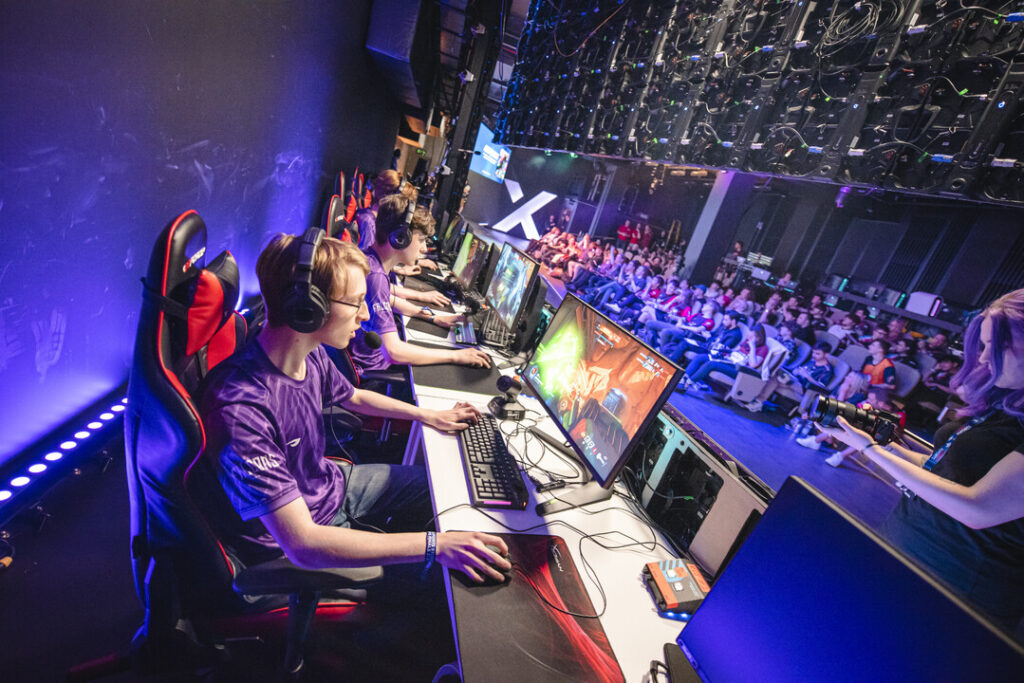Esports is short for electronic sports. It refers to competitive video gaming. Over the years, esports has grown a lot. Today, it is a legitimate sport.

Credit: www.toptal.com
Early Beginnings
The history of esports starts in the 1970s. The first known video game competition happened in 1972. It was held at Stanford University. The game was “Spacewar!” and the prize was a year’s subscription to Rolling Stone magazine.
The 1980s: The Rise Of Arcade Games
The 1980s saw the rise of arcade games. Games like “Pac-Man” and “Donkey Kong” became very popular. People would line up to play and beat high scores. In 1980, Atari held the Space Invaders Championship. It was the first large-scale video game competition. Over 10,000 people participated.
The 1990s: The Birth Of Multiplayer Games
In the 1990s, multiplayer games became popular. Games like “Doom” and “Quake” allowed players to compete against each other. The first professional esports leagues started in this decade. The Cyberathlete Professional League (CPL) was founded in 1997. It held tournaments for games like “Quake” and “Counter-Strike.”
The 2000s: Esports Goes Global
The 2000s saw esports grow even more. The internet made it easier for players to compete. New games like “StarCraft” and “Warcraft III” became popular. South Korea became a major hub for esports. The Korean e-Sports Association (KeSPA) was founded in 2000. It helped to organize and promote esports in the country.
Live Streaming And Online Platforms
Live streaming changed the world of esports. Platforms like Twitch, launched in 2011, allowed fans to watch games live. This made esports more accessible to people around the world.
Major Tournaments And Prize Pools
Esports tournaments started to offer big prize pools. The International, a “Dota 2” tournament, is one of the biggest. In 2019, it had a prize pool of over $34 million.
The 2010s: Mainstream Recognition
The 2010s were a big decade for esports. It gained mainstream recognition. Universities started offering esports scholarships. Professional teams and leagues were formed. Games like “League of Legends” and “Fortnite” became very popular.
Esports And Traditional Sports
Traditional sports organizations started to invest in esports. The NBA launched the NBA 2K League in 2018. Soccer teams like Paris Saint-Germain and Manchester City created their own esports teams.
Media Coverage And Sponsorships
Esports started to get more media coverage. Major networks like ESPN and BBC began broadcasting esports events. Sponsorships from big companies like Coca-Cola and Intel helped to boost the industry.
The 2020s: The Future of Esports
Esports continues to grow in the 2020s. New technologies like virtual reality (VR) and augmented reality (AR) are being explored. The COVID-19 pandemic also increased interest in esports. With traditional sports on hold, more people turned to esports for entertainment.
Esports In The Olympics
There is ongoing discussion about including esports in the Olympics. The International Olympic Committee (IOC) has held forums to explore this possibility. While it hasn’t happened yet, many believe it’s only a matter of time.
Conclusion
Esports has come a long way since its early days. It has grown from small competitions to a global phenomenon. Today, it is recognized as a legitimate sport. With continued growth and innovation, the future of esports looks very bright.
Quick Facts About Esports
| Fact | Detail |
|---|---|
| First Video Game Competition | Stanford University, 1972 |
| Largest Prize Pool | The International 2019, over $34 million |
| Popular Esports Games | “League of Legends,” “Dota 2,” “Fortnite” |
| Major Streaming Platform | Twitch, launched in 2011 |
| Esports in Education | Universities offer esports scholarships |

Credit: www.tes.com
Top Esports Games
- “League of Legends”
- “Dota 2”
- “Counter-Strike: Global Offensive”
- “Fortnite”
- “Overwatch”
- “Call of Duty”
- “Hearthstone”
Why Esports Is Popular
There are many reasons why esports is popular. Here are a few:
- It is easy to watch online.
- There are many exciting games.
- Players can become famous.
- There are big prize pools.
- It is fun and engaging.
Conclusion
Esports is more than just playing video games. It is a sport that requires skill and dedication. It has a rich history and a bright future. As technology advances, esports will continue to grow and evolve. It will remain a major part of the entertainment world for years to come.








